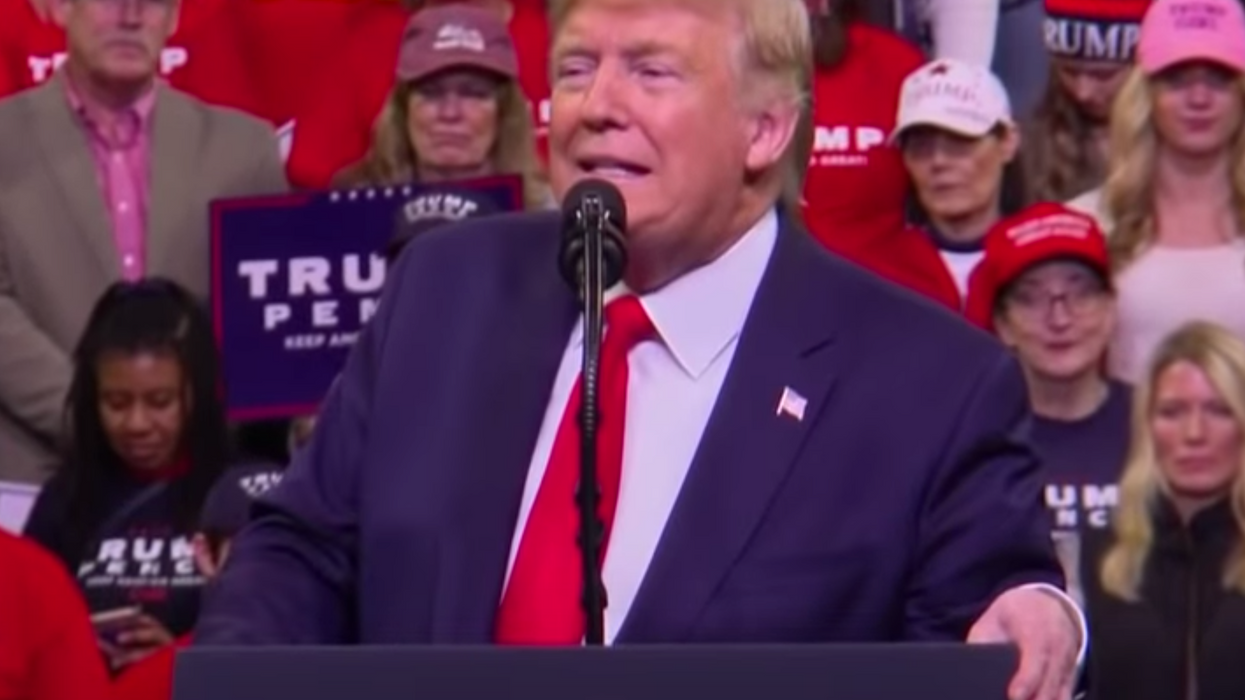When the flags fly proudly on the Fourth of July, I remember what my late father taught me about love of country. Much as he despised the scoundrels and pretenders he liked to call "jelly-bellied flag flappers," after a line in a favorite Rudyard Kipling story, he was deeply patriotic. It is a phrase that aptly describes the belligerent chicken hawk who never stops squawking — someone like Ted Cruz or Donald Trump.
Like many who volunteered for the U.S. Army in World War II, my dad never spoke much about his four tough years of military service, which brought him under Japanese bombardment in the Pacific theater. But eventually there came a time when he attached to his lapel a small eagle-shaped pin known as a "ruptured duck" — a memento given to every veteran. With this proof of service, he demonstrated that as a lifelong liberal, he loved his country as much as any conservative.
That gesture occurred during one of those periods when the political polarization now plaguing our country began to metastasize. It seemed important to my father -- and to me over these many years since -- to lay down a marker for liberals and progressives who love America, with her manifest flaws and conflicted past. Over these past two years, however, living through the pandemic and the insurrection, it has become equally important to recognize that patriotism can still bring us together across sectarian and ideological divides. And on this holiday, to celebrate the determined defense of democracy and law that brings together patriots of all partisan stripes.
On this Independence Day, it doesn't seem so important to argue, as I have in years past, that the liberal left is equally as devoted to American institutions and values as our compatriots on the right -- because so many of the latter have demonstrated, in their fealty to Trump, that they love their would-be dictator more than they love their country. Democrats have proved to be staunch and unified in their defense of the Constitution, with the party's elected officials leading the fight to uphold democracy both at home and around the world.
What feels vital today is to appreciate the allies from the other side of the political aisle who have rallied to the cause, at no small cost to themselves and their families. It is a list that grows longer by the day, starting with Rep. Liz Cheney and Rep. Adam Kinzinger, the Republicans who broke with their party to demand truth and justice in the wake of Trump's attempted January 6 coup. Both have proved willing to sacrifice their promising political futures and to subject themselves to vile abuse as they stood up against their degenerating quasi-fascist party and its criminal leader. They have forged real friendships as well as strong working relationships with the Democrats on the House Select Committee, because that is what Americans do in a time of crisis.
Both Kinzinger and Cheney still profess what I would consider misguided views or worse on many issues, and have adopted some positions -- on voting rights, for instance -- that contradict their professed love of democracy. So have other Republican and former Republican officials and leaders who have nevertheless proven their independence from Trump's authoritarian mob. Rusty Bowers, the Arizona Republican legislator who refused to bow to that mob, has even said he would vote for Trump again -- a truly bizarre statement.
And yet we must be grateful to Bowers, and to Brad Raffensperger and Gabriel Sperling of Georgia, as well as the eight other Congressional Republicans who voted to impeach Trump in January 2020, the seven Republican senators who voted to convict him, and the many conservatives who have chosen law and liberty over chaos, lies, and tyranny. Yes, that even includes Mike Pence, the former vice president who merely did his duty but performed that constitutional task under threat of death from the leader to whom he had shown such obsequious loyalty.
I cannot help but hope that all of these good people, forced to turn away from their party and many of their friends, will reconsider their reactionary views on all kinds of matters. Some conservatives, including a few whom I've gotten to know better in these moments, are indeed looking back and questioning rigid perspectives from the past. In many cases that is what their intelligence and ethics will eventually require of them.
Yet on this July Fourth, any such considerations matter much less to me than their willingness to set aside our differences in a common cause. Disagreements about the best way to fulfill our nation's promise will endure -- and I look forward to the day when we can again debate those matters in a democratic society secure from authoritarian threats.
Meanwhile, we ought to appreciate all the leaders, thinkers, and activists who have joined America's united front against fascism. We will be struggling together to preserve our common birthright for years to come.
.













Trump Cabinet Nominee Withdraws Over (Sane) January 6 Comments